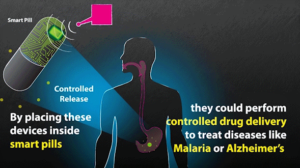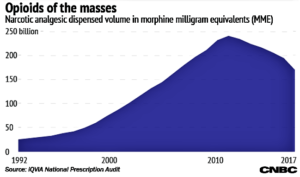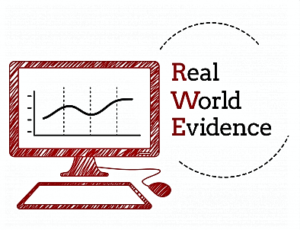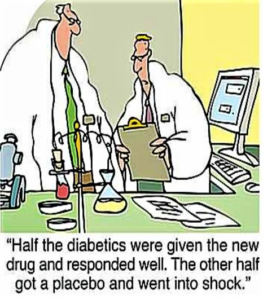- Wireless system can power devices inside the body (news.mit.edu)
MIT researchers, working with scientists from Brigham and Women’s Hospital, have developed a new way to power and communicate with devices implanted deep within the human body. Such devices could be used to deliver drugs, monitor conditions inside the body, or treat disease by stimulating the brain with electricity or light...The implants are powered by radio frequency waves, which can safely pass through human tissues...in animals, the researchers showed that the waves can power devices located 10 centimeters deep in tissue, from a distance of 1 meter...Even though these tiny implantable devices have no batteries, we can now communicate with them from a distance outside the body. This opens up entirely new types of medical applications...An overarching aspiration is that regulators will provide input to the design and may incorporate framework elements and learnings into regulatory programs. .
- How doctors in the US prescribe opioids — four charts (cnbc.com)Institute Reports Medicine Use and Spending in the US Review of 2017 Outlook to 2022 Medicine Use and Spending in the U.S. A Review of 2017 and Outlook to 2022 (iqvia.com)
The number of opioid pills prescribed peaked in 2011 and has since declined by 29 percent, according to a new report from the Iqvia Institute...The number of prescriptions accelerated its decline in 2017, with an even faster drop for high doses...More patients appear to be starting on medication-assisted therapies to treat opioid addiction...decline accelerated...helped by changes in regulation of opioid prescribing and in reimbursement policies from insurers...many of the programs that have been put into place in the past year or two seem to be having an impact...increased use of nonopioid pain treatments, like ibuprofen and other nonsteroidal anti-inflammatory drugs...as well as public awareness about overuse and misuse of opioids...
- The biggest innovators in health care, according to Fast Company (advisory.com)
Fast Company has released its 2018 edition of its "World's Most Innovative Companies" list, which recognizes more than 350 enterprises, including dozens involved in health care...The latest list covers 36 categories and recognizes the 10 most innovative companies in each category, with an overall list of the top 50 most innovative companies curated from the category-specific lists. To compile the lists, more than three dozen Fast Company "editors, reporters, and contributors surveyed thousands of companies" to "identify the most notable innovations of the year, and trace their impact on businesses, industries, and the larger culture."
- In the publication's health care-specific category, the 10 most innovative companies are:
CVS Health
23andMe
Color
Veritas Genetics
Helix
Maven Clinic
Qventus
Glooko
Emocha Mobile Health
Dosist
- In the biotech category, the 10 most innovative companies are:
Novartis
OneOme
GE Healthcare
Syapse
Sophia Genetics
Spark Therapeutics
Biogen
Synthego
WuXi NextCo
Ginkgo Bioworks
- In the publication's health care-specific category, the 10 most innovative companies are:
- Big pharma, big data: why drugmakers want your health records (reuters.com)
Drugmakers are racing to scoop up patient health records and strike deals with technology companies as big data analytics start to unlock a trove of information about how medicines perform in the real world...Studying such real-world evidence offers manufacturers a powerful tool to prove the value of their drugs...Real-world evidence involves collecting data outside traditional randomized clinical trials, the current gold standard for judging medicines, and interest in the field is ballooning...The ability to capture the experience of real-world patients, who represent a wider sample of society than the relatively narrow selection enrolled into traditional trials, is increasingly useful as medicine becomes more personalized...It’s getting more expensive to do traditional clinical trial research, so industry is looking at ways it can achieve similar goals using routinely collected data...The thing that has made all this possible is the increasing digitization of health records...Food and Drug Administration...believes more widespread use of real-world evidence (RWE) could cut drug development costs and help doctors make better medical choices...Under the 21st Century Cures Act, the FDA has been directed to evaluate the expanded use of RWE...As the breadth and reliability of RWE increases, so do opportunities for FDA to also make use of this information...
- How big data can design safer clinical trials and reduce animal testing (outsourcing-pharma.com)A big data approach to the concordance of the toxicity of pharmaceuticals in animals and humans (sciencedirect.com)
Bayer AG and Elsevier studied more than 1.6m adverse events to show how big data can be used to reduce animal testing and design trials "altered to potential risks," says researcher...The entire life sciences industry is committed to reducing animal testing, and all organizations are looking at how this can be done effectively...The study analyzed 1,637,449 adverse events (AEs) reported for both humans and the five most commonly used animals in US Food and Drug Administration and European Medicines Authority regulatory documents for 3,290 approved drugs and formulations...published in the Journal of Regulatory Toxicology and Pharmacology...We already know that animal testing has some predictive capabilities for humans but there has never been a study on this broad scale before to look at the level of exact concordance...Of the study’s key results...the species most frequently used in toxicology (rat and dog)...are performing well with regard to identifying adverse events in humans...also...the negative predictive value is low for many adverse events...no findings in animal often does not mean that no adverse events will occur in humans...some effects observed in some animal species do not imply high risk for humans...The analysis allows a researcher to estimate the human risk implied by a given observed effect in an animal...With access to this kind of information, researchers can design safer clinical trials in the future...
- Study Estimates Nonoptimized Medications Cost the U.S. $528.4 Billion Annually (ptcommunity.com)
Researchers propose that pharmacists can help improve medication-related care and lower costs...the actual cost of prescription medications is more than just the dollars and cents on the bill, according to a recent study. Researchers...estimate that illness and death resulting from nonoptimized medication therapy costs $528.4 billion annually...when you’re sick, a health care professional prescribes you a medication, you take it as directed, and you get better...But what happens a lot of the time is the medication regimen is not optimized...the prescription may not be exactly appropriate for your indication—not quite the right medication or dose—or you just don’t take the medication for whatever reason, don’t take them as directed, or the medication causes an adverse event or a new health problem...the current cost of each possible consequence...illnesses and deaths that result from nonoptimized medication therapy to be $528.4 billion...Nonoptimized medication therapy is a massive avoidable cost. If medications were prescribed, monitored, and taken properly, we wouldn’t face this cost, and patients would be healthier...To improve medication-related care...authors...would like to see a systematic and coordinated effort to break down prescriber–pharmacist silos and expand comprehensive medication management programs, in which clinical pharmacists have access to complete medical records, improved dialogue with other members of a patient’s health care team, and input as a medication is prescribed—similar to what is now taking place at many U.S. Veterans Affairs clinics.
- Participants in rogue herpes vaccine research take legal action (fiercepharma.com)
Three people injected with an unauthorized herpes vaccine by a Southern Illinois University researcher have filed suit against his company, demanding compensation for alleged adverse side effects from the experiments...SIU professor William Halford, who died in June, had injected Americans with his experimental herpes vaccine...in 2016 and 2013 without safety oversight that is routinely performed by the FDA or an institutional review board...The lawsuit, which was filed Friday in an Illinois circuit court, demands compensation from Halford’s company, Rational Vaccines, alleging his research violated U.S. and international laws aimed at protecting the rights of participants in experiments…Rational Vaccines has said it considers the 2016 trial a success—though it is unclear what data it used to support that claim...SIU has...acknowledged that Halford’s conduct violated university rules and U.S. laws but said that Halford hid his misconduct from the university.
- NIH opens nationwide enrollment for huge precision medicine initiative (statnews.com)
The All of Us initiative, which will be launched on May 6, aims to compile detailed health profiles of 1 million Americans, with a special focus on communities historically underrepresented in biomedical research...The program, which began as a pilot last year, is the most ambitious attempt yet to compile health and behavioral data, as well as genetic sequencing, from a representative sample of the American population. It will collect electronic health records, survey data, and even information from its participants’ wearable fitness devices – with the goal of helping scientists better understand how to craft personalized treatments, seen by many as the future of biomedicine...
- Washoe County releases chronic disease report card (kolotv.com)2018 Washoe County Chronic Disease Report Card A Summary Report of Chronic Health Conditions and Primary Risk Factors (washoecounty.us)
The Washoe County Health District has released the “2018 Washoe County Chronic Disease Report Card,” the most current and available information about chronic disease and their risk factors for Washoe County...“The intent of this report is to provide a summary of chronic diseases and their risk factors in Washoe County and to serve as a source of currently-available chronic disease data. It is also intended to provide local health care providers, chronic disease practitioners, and other interested persons and programs with data they may use in their work to improve the health of Washoe County,” says District Health Officer Kevin Dick...
- Drug copays sometimes exceed costs (reuters.com)Frequency and Magnitude of Co-payments Exceeding Prescription Drug Costs (jamanetwork.com)Patients Overpay For Prescriptions 23% Of The Time, Analysis Shows (khn.org)
Insurance companies may be asking people to shell out more money for drug co-payments than the drugs actually cost, a new study suggests...Generic drug co-payments in the U.S. exceeded the cost of medicines about 28 percent of the time – or for more than one in four prescriptions, researchers found...Co-payments for branded drugs were higher than the medication cost about 6 percent of the time, they report in JAMA...“This is money that patients could be saving if they knew about and could avoid the practice,” said lead study author Karen Van Nuys of the Schaeffer Center for Health Policy and Economics at the University of Southern California...To avoid overpayments, patients should always ask the pharmacist if their costs would be lower if they paid cash instead of using their insurance...“Pharmacists might not be allowed to offer this information to patients due to `gag clauses’ but if patients ask, pharmacists can tell them,”...“Several states have banned these practices and allow pharmacists to offer this information but even if you live in one of those states, you should ask,”...“Patients can also use pricing tools on the internet like GoodRx.com to see what prices they could expect across a variety of pharmacies if they paid cash.”










